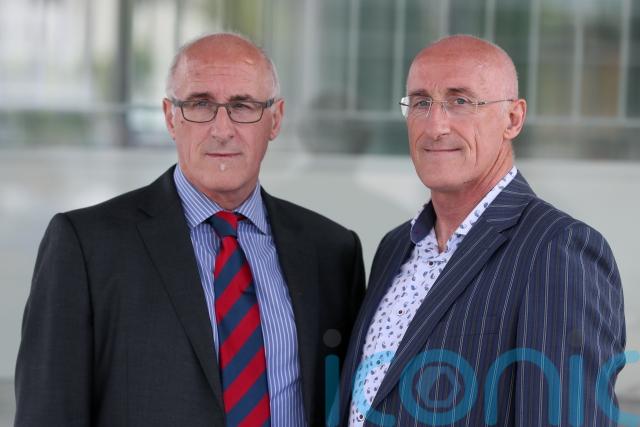
A campaigner for victims of the infected blood scandal in Northern Ireland has called for MLAs to “represent us” as he warned “the job is only starting”.
Nigel Hamilton from Haemophilia NI told the Stormont Health Committee it is “critical” that the department is held to account for how it implements a redress scheme for victims.
More than 30,000 people in the UK were infected with deadly viruses between the 1970s and early 1990s as they received blood transfusions or blood products while undergoing NHS care.
A report from the Infected Blood Inquiry, published by Sir Brian Langstaff, found the scandal “could largely have been avoided” and there was a “pervasive” cover-up to hide the truth.
Sir Brian’s report highlighted that Northern Ireland was reliant on blood donated by prisoners and military personnel, two groups associated with higher risk of blood infections.
It also found that authorities in Northern Ireland “brought little independent thinking” to the issue and were content to allow central government to take the lead on all significant decisions related to the scandal.
After the Government’s announcement of a compensation scheme for victims, Stormont Health Minister Robin Swann pledged to ensure that victims in Northern Ireland will receive compensation at the same time as the rest of the UK.
Mr Hamilton, who updated the committee on Thursday, has haemophilia, a condition that affects the blood’s ability to clot, and he was treated with contaminated blood products from the age of 16.
His twin brother Simon died on Christmas Day from a brainstem bleed resulting from haemophilia and was also a victim of the infected blood scandal.

Mr Hamilton said not all of those eligible under the scheme had been registered, as he called for the assembly to stand up for victims in Northern Ireland.
He said: “This assembly needs to know that its victims are being represented equally, but also represented fairly.
“And in the regional assemblies, which previous governments and prime ministers and secretaries of state have relied on heavily and explained to us is so important that local people have their say, I want you people to have your say and represent us.
“That’s important. The job is not done. The job is only starting at this stage. So it’s critical that we get that opportunity and your voices should be heard and will be heard, and we will do all in our part to assist you in that.
“So representation at this stage is very important and ensuring that we have a process that answers and is accountable to the recommendations, putting them in and getting the impact from those recommendations, is absolutely critical.
“Otherwise, all that has been set up, all of that has been spent, is nothing and no value.”
Mr Hamilton also called for a “robust system that’s capable of handling the issues that are brought to you”.
He said: “That requires some consultation with victims. It also requires consultation, direct consultation, through the appropriate authorities that you would adhere to, with Sir Robert Francis (interim chairman of the Infected Blood Compensation Authority).
“I would like to see the First Minister, deputy First Minister, taking an angle on this, I think it’s really important. This was the worst health scandal in the National Health Service. We don’t ever want it to happen again.”
The long-time campaigner said it was “traumatic” but “powerful” to see the outcome of the inquiry which acknowledged failings that victims of the scandal had known about for years.
Mr Hamilton told the committee: “We very much value as a community the opportunity to express our interests and our concerns in relation to victims and prisoners legislation, and the aftermath of the public inquiry which, for those of us who were over, was extremely traumatic, very powerful, and an opportunity to divest ourselves as we could of some of the major issues that had been troubling us over a number of years.
“It had been, for all of us, an opportunity to face the issues and get answers where we could and have a sense of justification.
“Because there were a number of issues we felt we knew, but we didn’t have that clarity. And that clarity was certainly given through Sir Brian and through his staff, both in the report which is quite a voluminous document, there were two hard copies and the remaining five copies were on egress for us.
“So it was a very worthwhile experience and a very cathartic experience and one that I think most of us have valued greatly.”
Subscribe or register today to discover more from DonegalLive.ie
Buy the e-paper of the Donegal Democrat, Donegal People's Press, Donegal Post and Inish Times here for instant access to Donegal's premier news titles.
Keep up with the latest news from Donegal with our daily newsletter featuring the most important stories of the day delivered to your inbox every evening at 5pm.